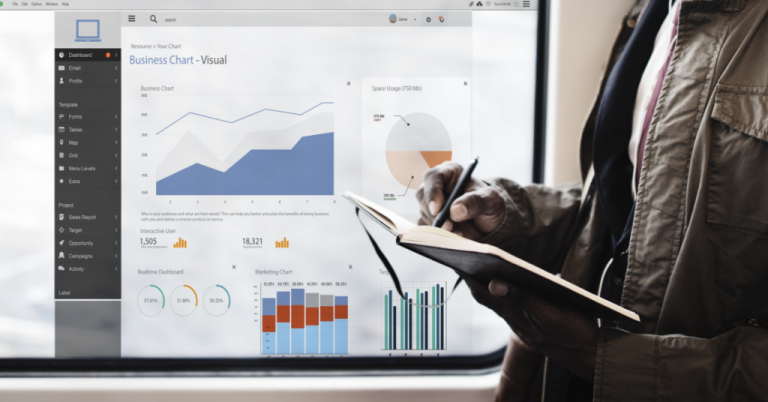Real estate has always been about making smart decisions—choosing the right location, knowing when to buy or sell, and managing properties effectively. But today, data is playing a bigger role than ever before. Analytics in Real estate is giving agents, investors, and property managers the ability to make more informed choices by showing trends, predicting prices, and understanding buyer behavior.
With real estate analytics, you don’t have to guess. Whether you’re setting the right price for a property, finding a neighborhood on the rise, or managing rental rates, you can rely on real data to make smarter, faster decisions.
Table of Contents
How to Use Business Analytics in Real Estate?
Analytics in real estate is the use of data to guide decisions. It gathers information from multiple sources—like property sales, local market trends, buyer behavior, and neighborhood data—and then analyzes it to reveal trends and opportunities.
Real estate professionals use analytics to:
- Set property prices: Based on similar homes, recent sales, and demand in the area.
- Understand market conditions: Whether prices are rising, falling, or stabilizing.
- Predict future trends: Analytics helps forecast how a neighborhood might grow or change.
- Evaluate buyer preferences: What features are buyers or tenants looking for?
It turns data into insights that you can use for pricing, timing, and investment decisions.

6 Ways Real Estate Analytics Can Help You

Setting the Right Price
Pricing a property right can make a huge difference. Price it too high, and it could sit on the market. Price it too low, and you leave money on the table. With analytics, you get insights into what similar properties sold for, what buyers are willing to pay, and how the market is moving.
Knowing When to Buy or Sell
Real estate is all about timing. Analytics helps you see when demand is rising or falling so you can sell at the right time or buy before prices go up. This way, you maximize your profits by knowing when the market is working in your favor.
Targeting the Right Buyers
Not every home is for everyone. Analytics in Real estate show you who’s most likely to be interested in your property. Whether you’re selling a family home or a trendy downtown apartment, you can tailor your marketing to reach the right people.
Maximizing Rental Income
If you manage rental properties, getting the rent just right is key. Charge too much, and you’ll have vacancies. Charge too little, and you’re missing out on potential income. Analytics helps you understand what similar properties are renting for and how high the demand is, so you can adjust accordingly.
Reducing Investment Risk
Every real estate investment comes with risk, but with analytics, you can see warning signs before they become problems. For instance, it can show you areas where property values are dropping or neighborhoods that are becoming oversaturated with new builds.
Improving the Customer Experience
Whether you’re working with buyers or renters, understanding their needs can make the process smoother. Analytics gives you a deeper look into what people are searching for, so you can match them with properties that fit their lifestyle.
How Real Estate Analytics Fits into Your Daily Workflow

You don’t need to be a data expert to use real estate real estate analytics—it can fit right into your daily routine. Here are some simple ways to get started:
1. Pricing Properties Confidently
Before listing a property, use analytics to see what similar homes in the area sold for. You’ll have a clearer idea of what buyers are willing to pay, helping you set a competitive price that sells the property quickly without leaving money on the table.
2. Tailoring Your Marketing Strategy
Instead of marketing to everyone, analytics helps you focus on who’s most likely to buy your property. If your property appeals to families, target areas with good schools and family-friendly neighborhoods. This way, your marketing dollars go further.
3. Managing Leads
With real-time data, you can track which leads are most serious and what properties they’re interested in. This helps you prioritize follow-ups, so you’re focusing on the people who are most likely to buy.
4. Optimizing Rental Pricing
If you manage rental properties, you know how hard it can be to strike the right balance with rent. Analytics tools help you adjust pricing based on demand, seasonality, and local competition, so you can keep your units full while maximizing your income.
5. Tracking Property Performance
When managing multiple properties, it’s important to keep track of how each one is performing. Data Semantics provides easy-to-read dashboards that let you monitor key metrics like occupancy rates and tenant satisfaction, helping you quickly spot any issues and fix them.
6. Identifying Investment Opportunities
Analytics shows where buyer demand is increasing, which neighborhoods are growing, and which areas might be declining. This makes it easier to identify the best places to invest and avoid areas that could turn into financial risks.
6 Real-Life Examples of Real Estate Analytics in Action

1. Spotting Hot Neighborhoods
If you’re looking for your next investment, finding an up-and-coming neighborhood is key. Analytics in Real estate can show you where businesses are opening, where home sales are increasing, and which areas are about to take off.
2. Setting the Right Rent
For property managers, analytics is a must when setting rents. It helps you see what similar units are charging and whether demand is rising or falling. This helps you set competitive rates that keep your units full without leaving money on the table.
3. Choosing the Best Tenants
If you own commercial properties, picking the right tenants is crucial for long-term success. Analytics helps you understand foot traffic and customer behavior in an area, so you can choose businesses that will thrive in your space.
- Predicting Property Value Changes
Whether you’re buying or selling, it’s important to know how a property’s value will change in the future. Analytics helps you forecast these changes based on market trends and past data, so you can make informed decisions.
- Targeting Buyers with Precision
Instead of casting a wide net, analytics helps you focus on buyers who are most likely to be interested in your property. You can create personalized campaigns that speak directly to the needs and desires of your ideal buyer, saving you time and money.
6. Reducing Vacancy Rates
For rental properties, keeping units full is critical. Analytics helps you track tenant behavior and predict when vacancies might occur, so you can adjust your strategy and fill units faster.
The Future of Analytics in Real Estate
As technology advances, real estate analytics is only going to get more powerful. With AI and machine learning, analytics tools will be able to predict market trends with even more accuracy. This means even better insights for pricing, investments, and property management. Soon, you’ll be able to make decisions based on hyper-local data—right down to the block level
Whether you’re pricing properties, managing rentals, or looking for your next investment, using data helps you make smarter, more confident decisions. If you haven’t started using analytics yet, now is the time. The right tools can help you stay ahead of the competition and maximize your results.













